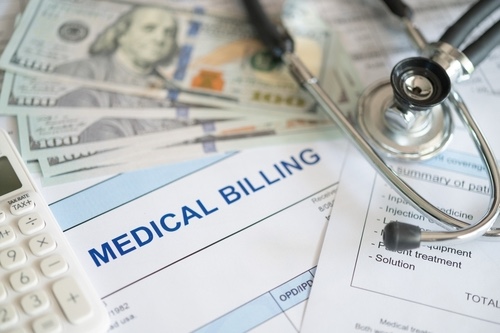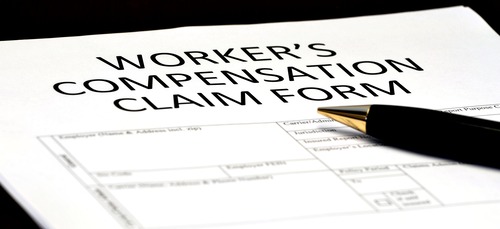Do You Have to Pay Your Deductible If You’re Not At-Fault?
When dealing with the aftermath of a motor vehicle accident, many drivers face the frustrating question: Do you have to pay your deductible if you’re not at-fault? This situation can be confusing, especially when you’re not sure how your car insurance coverage handles deductibles. Understanding how car insurance deductibles work and the claims process can help you navigate these challenges.
Understanding Car Insurance Deductibles
A auto insurance deductible is the amount you pay out of pocket before your insurance agency steps in to cover the remaining costs of a claim. Deductibles apply to collision coverage and comprehensive coverage, which address damages from accidents, theft, vandalism, or natural disasters.
For instance, if your car sustains $3,000 in damages from a car accident and your deductible is $500, you would pay the first $500, and your insurer would cover the remaining $2,500. However, when the accident is not your fault, paying this deductible may seem unfair.
In many cases, you can recover your deductible from the at-fault driver’s insurance. Understanding the specifics of your car insurance policy is crucial to knowing your rights and options. Even if your own insurance agency covers initial costs, they may seek reimbursement from the at-fault party’s insurer, allowing you to recover your deductible.
Determining Fault in a Car Accident
Fault determination is a critical factor in whether you’ll need to pay your deductible. In Georgia, a fault-based system holds the at-fault driver financially responsible for damages. However, fault is not always clear-cut. Factors such as police reports, witness statements, and traffic laws come into play.
For instance, a driver who failed to yield or violated a traffic signal is more likely to be found at fault. A car accident lawyer can help assess fault and navigate the claims process, ensuring all necessary evidence supports your case.
If you’re not at fault, your own insurance may initially cover your damages through collision coverage, but they will often pursue reimbursement from the liable party’s insurance company. This process, known as subrogation, can lead to you getting your deductible back.
Car Accident Claims and Insurance Companies
After a car accident, the insurance companies involved begin their investigations to determine fault and evaluate damages. Your driver’s insurance company and the other driver’s insurance company will examine the accident’s details, often relying on police reports and witness testimony.
Insurance companies aim to minimize payouts, so even your own insurance company may try to settle for less than you deserve. Having an experienced car accident attorney on your side can help ensure you receive fair compensation for your damages, including medical bills and property repairs.
If your insurer recovers costs from the at-fault driver’s insurance, you may be reimbursed for your deductible. However, this depends on the success of their claim against the other party. Consulting a lawyer early in the claims process can streamline this procedure and protect your financial recovery.
Reimbursement for Your Car Insurance Deductible
You might still need to pay your deductible upfront after a car accident, even if you’re not at fault. The good news is that you can recover this amount later through subrogation, a settlement, or a lawsuit. Subrogation occurs when your insurance company seeks reimbursement from the at-fault driver’s insurer for the money they paid on your claim, including your deductible.
For example, if your insurance pays for your car repairs through your collision deductible, they will attempt to recover those costs. Once successful, your insurer typically reimburses you for the deductible you initially paid.
If subrogation is unsuccessful or the at-fault driver’s insurance agency disputes liability, a car accident lawyer can help you file a lawsuit to recover your deductible and other damages.
Exceptions to Paying Your Deductible
It’s important to note that deductibles apply in many situations, regardless of fault. For example, if your car is stolen or damaged by fire, you’ll pay the deductible associated with your comprehensive coverage. Similarly, deductibles apply in both at-fault and not-at-fault accidents when filing a claim with your own insurance company.
However, if you have liability insurance, you typically won’t pay a deductible for damages you cause to others. Instead, your liability coverage compensates the other party. Understanding your insurance policy and its terms can help you avoid surprises when filing a claim.
Understanding Your Insurance Coverage
Every car insurance policy outlines specific terms for deductibles, coverage, and claims. Policies often include a collision deductible for accident-related repairs and a comprehensive deductible for non-accident damages.
Policyholders can choose their deductible amounts, with higher deductibles generally resulting in lower premiums. This tradeoff reflects the insurer’s reduced costs when claims are filed.
For example, selecting a $1,000 deductible might lower your monthly premium but increases your out-of-pocket expenses if you file a claim. Reviewing your policy with an attorney or insurance agent can clarify your coverage and help you make informed decisions.
Seeking Help from a Car Accident Lawyer
Navigating the aftermath of a motor vehicle accident can be overwhelming, especially when dealing with insurance companies. An experienced car accident lawyer can assist in gathering evidence, communicating with the at-fault driver’s insurance agency, and negotiating a fair settlement.
A lawyer’s role includes ensuring that all necessary documents, such as medical records and repair estimates, are submitted correctly. They will also advocate for your right to recover your deductible, lost wages, and other damages. Consulting a lawyer can make a significant difference in achieving a favorable outcome for your claim.
Steps to Take After a Car Accident
Taking the right steps immediately after a car accident can simplify the claims process. First, exchange contact and insurance information with the other driver and report the accident to the police. A police report can serve as crucial evidence in establishing fault.
Seek medical attention for any injuries, even if they seem minor, and notify your insurance company about the accident. Keep detailed records of all communications with insurers and repair shops to support your claim.
Finally, consult a car accident lawyer to evaluate your case and guide you through the legal action process, if necessary.
Dealing with the At-Fault Driver’s Insurance Company
Communicating with the at-fault driver’s insurance company can be tricky. Insurers often attempt to settle claims for as little as possible, looking for flaws in the claimant’s evidence or documentation.
Having a lawyer handle these negotiations can ensure you receive the maximum compensation to cover damages, including your insurance deductible. An attorney will counter low settlement offers and advocate for fair pay for your injuries, car repairs, and other losses.
If the insurer disputes liability or refuses to reimburse your deductible, your lawyer can pursue legal action to hold the at-fault party accountable.
Conclusion
Understanding your rights and responsibilities regarding auto insurance deductibles is essential after a car accident. While you may have to pay your deductible upfront, recovering that amount from the at-fault driver’s insurance is often possible through subrogation or legal action.
If you’re unsure about your next steps, consulting a car accident lawyer can provide clarity and support. Miami Lawyers 360 is here to help you navigate your insurance claim, determine fault, and seek fair compensation.
Contact us today at (786) 686-2857 for a free consultation to discuss your case and learn more about your options. Our experienced attorneys are dedicated to ensuring you get the justice and financial recovery you deserve.






